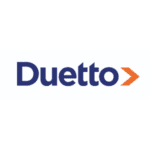 By 2021, digital travel sales will net over $209 billion in the United States alone. It’s not surprising that the travel industry provides 10 percent of all jobs globally and is expected to generate over $105 trillion in revenue by 2020. Ancillary sales are expected to jump from their current value of $70 billion a year to $130 billion by 2020.
By 2021, digital travel sales will net over $209 billion in the United States alone. It’s not surprising that the travel industry provides 10 percent of all jobs globally and is expected to generate over $105 trillion in revenue by 2020. Ancillary sales are expected to jump from their current value of $70 billion a year to $130 billion by 2020.
Travel has always been about the experience, but what defines a great experience has changed significantly throughout the years. There was a time when travel by aircraft itself was an extraordinary and exclusive experience, people engaged in welcome or unwelcome conversation with their neighbouring passengers and eventually, people got to watch the same on-flight family rated entertainment. The notion of a gigantic steel object powering through the air at exhilarating speeds carrying hundreds of passengers is no longer fascinating and the idea of not controlling the entertainment you are exposed to is inconceivable. Travel experience is rated based on convenience and comfort to the finest details. The decision between enthralling views from a window seat and the quick exit offered by an aisle seat has become a difficult one and the decision to avoid conversations by zoning in on your personal screen with its entertainment bouquet has become an easy one. It seems that airlines able to get travellers to their destination without knowing they were on an aircraft are scoring big on comfort and convenience…and there is nothing wrong with that. But that’s just the flight – comfort and convenience is demanded from planning the trip to finally returning from it.
The rise of younger, demanding travellers is partly what will drive this increase in revenue. Some of them may be low-value now, but they will mature. And although there is some uncertainty about how to handle the digital disruption of the travel industry by insiders and outsiders alike, fortune seems to favour the bold here.
Already, digitally-savvy upstarts have siphoned more than $100 billion in revenue away from traditional industry players. Companies like Uber and AirBnb have moved the goalposts with their agility, leaving more hidebound operators running to catch up.
Adaptation is tricky, though: Universal product and service offers (whether solicited or not) make customers reluctant to share data and vigilant in its protection, now with renewed vigour following General Data Protection Regulation and similar instruments the world over. Providers need to identify digital trends, collect user data, process it into useful information, and then deploy it to develop accurate digital marketing strategies. Providers need to show the value of data sharing by offering relevant products and services. This sharp learning curve has to be completed stat if the provider is to remain relevant; as younger consumers will tend to shift to industry leaders that build the playground of the future.
Younger travellers and the experience of the journey
Travel providers gather vast amounts of data from their customers, and since everyone is different, data-driven merchandising has become an increasingly influential current in the hospitality sector. A travel provider’s ability to understand and respond to data trends in real-time will be key to ensuring they attract the likes of millennial travellers, who can be quite finicky.
Millennial travellers want their journeys to be an exploration, to have meaning: Millenial travellers want not just transport or physical comfort, but rather the experience of travel. They seek delight, not goods. Providers who can adapt to delivering this experience stand to gain a short-term advantage in sales and a long-term advantage in the shape of an emotional bond that fosters long-term brand loyalty. It’s worth noting that an estimated 81 percent of millennials and 76 percent of Generation Xers are active Facebook users, making them more interconnected than older generations like the Baby Boomers.
To prosper on and offline, travel brands need to do what their millennial customers are doing: they need to make themselves unique. Travel providers gather vast amounts of data from their customers, and since everyone is different, data-driven merchandising has become an increasingly influential current in the hospitality sector. A travel provider’s ability to understand and respond to data trends in real-time will be key to ensuring they attract the likes of millennial travellers, who can be quite finicky.
Research shows that almost half of consumers now base purchase decisions on online review sites, and 40 percent turn to friends or family for guidance—the most screen-conscious consumers still believe flesh-and-blood humans, even if they’re strangers, over impersonal brands. In short, brands need to make themselves more human —a human face, a human way of interacting, and a human agility.
Customisation versus personalisation
Customisation is (or was) exciting for customers used to a one-size-fits-all approach, but it’s invariably based on restriction—limiting choices to a selection of what the provider already offers. This requires conscious input, and consequently effort, from customers, and it doesn’t necessarily speak to what they want. While customisation may still satisfy some, the determination of today’s younger travellers to be acknowledged as individuals is driving more engaging and effective data-led personalisation instead.
Close to 60 percent of both millennials and Generation Xers are happy to share their personal data to access individualised offers. In return, they expect personal products, and over 70 percent of these travellers already gravitate to providers who acknowledge their distinctiveness and that are themselves distinctive. Recognising customer uniqueness potentially leads to an ocean of revenue: customers engaged on a personal level are 60 percent higher value and five times more brand-loyal than those who are not. Personalisation speeds up purchasing decisions and boosts sales.
Provider preparedness and the future of personalised travel
When well analysed and properly processed, data equips providers to adjust their services and prices to fit customer needs, and it can also develop predictive capabilities to ensure that future business decisions aim directly into rich revenue currents.
The early identification of trends and, more specifically, traveller intentions can facilitate precision marketing. Consider Hello Hipmunk, for example—an AI-driven travel planner that takes into account specific goals that travellers have, such as adventure and/or romance, when assisting with trip bookings.
We’ve already covered the benefits of optimal analytics for data, so we’ll only reiterate that customers enjoy—and increasingly expect—personalisation. The future of the travel sector lies therein. Providers that value growth will adapt to unlock the massive potential younger travellers, especially those from emerging markets, have to generate revenue, enhance brand reputation, and consequently secure market share.
How to do this? Providers need to code digital agility into their very DNA. Failure to adapt to changing customer behaviour could mean being outstripped. This idea may not be news to many industry players, but a full 43 percent are confident only that they are keeping pace. Fewer than a quarter of providers believe they’re comfortably prepared, and 35 percent believe that they need to speed up development or risk falling in the food chain. 40 percent of companies would like to evolve to fit the coming fully-mobile environment faster than they are currently doing.
But there is also growing confidence. In previous years, travel providers were concerned that their staff were digitally under skilled; in 2018, less than a third are concerned about this. This is breeding confidence, but also a hunger for growth: 53 percent of providers have prioritised providing consistently high-quality personalised service to travellers, and 50 percent are dedicated to expanding their customer bases.
It seems that the travel industry is well aware that the balance of power has shifted, and are moving in the right direction.
Source: Hepstar Insurance Distribution. Founded in 2013, Hepstar provides specialised Travel Insurance Merchandising services to online travel merchants. In a short period of time, Hepstar has experienced rapid growth. With headquarters in Cape Town, South Africa and two further branches in Turkey and Mauritius, Hepstar is continuously expanding to meet the servicing requirements of its partners.

















